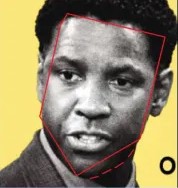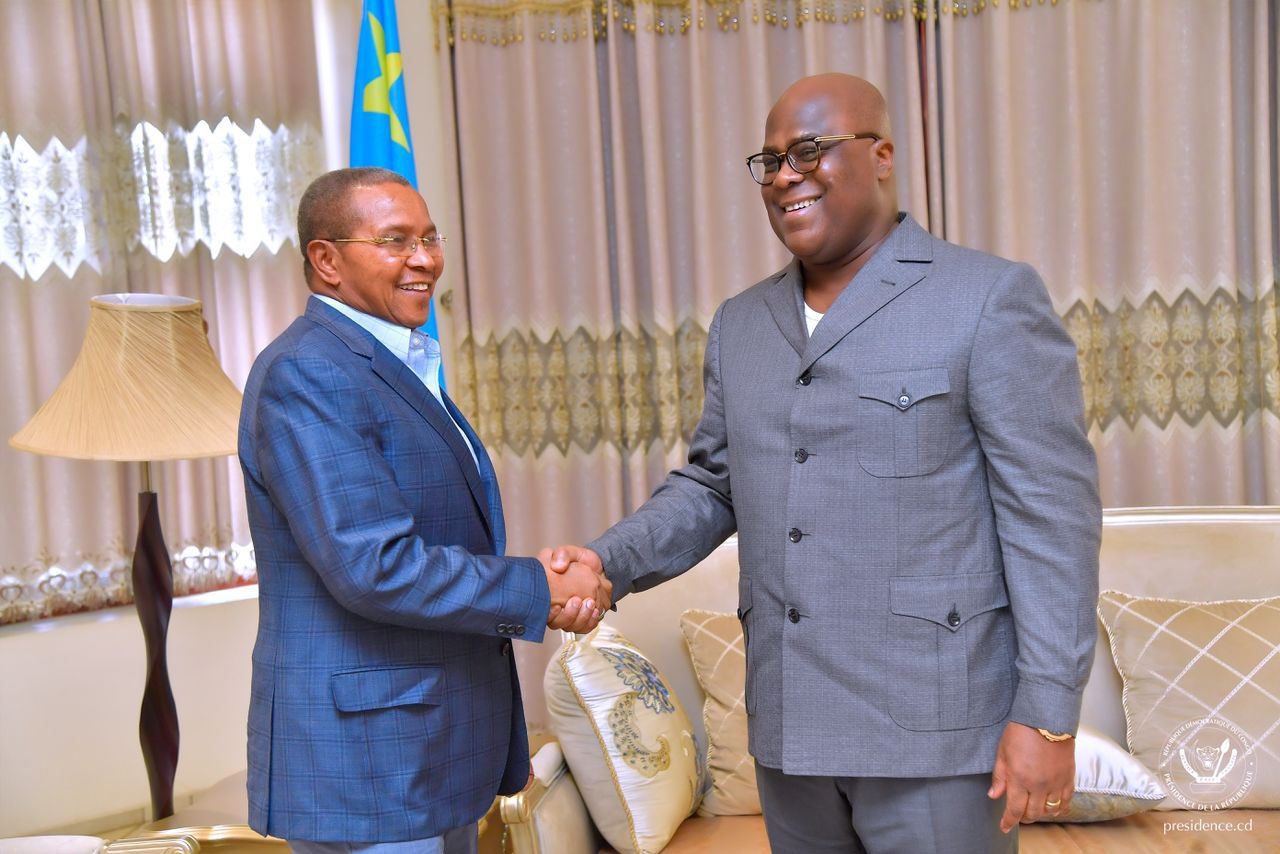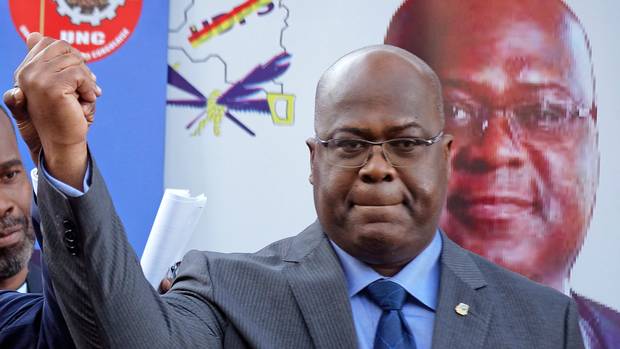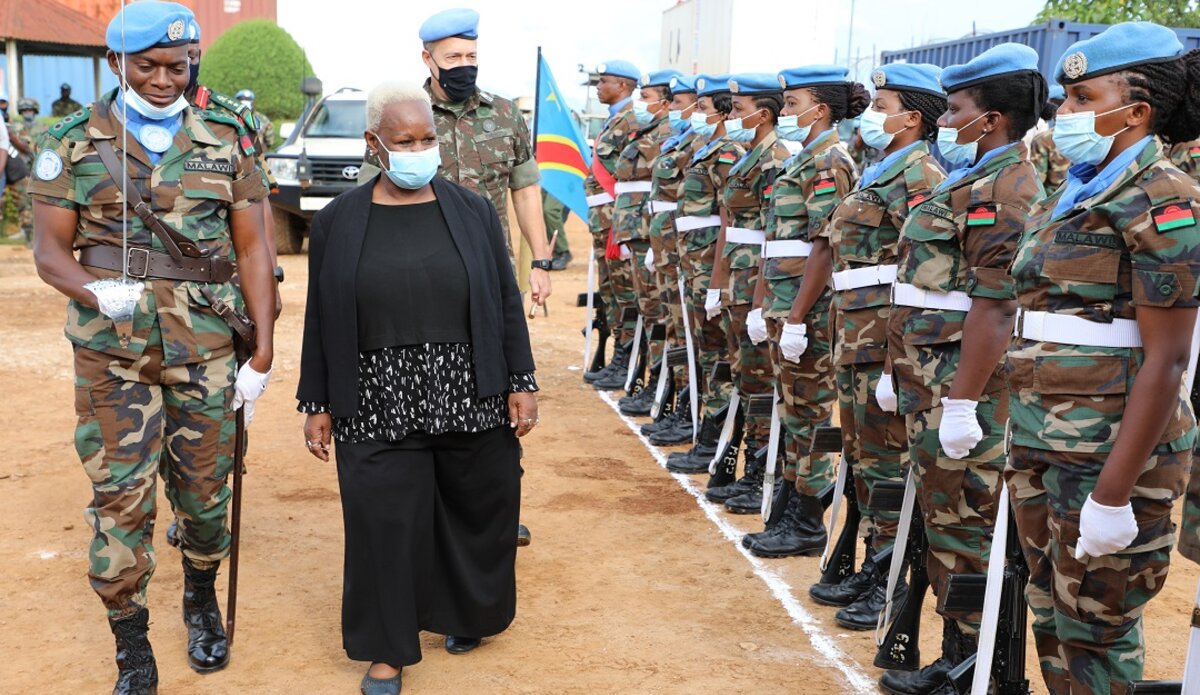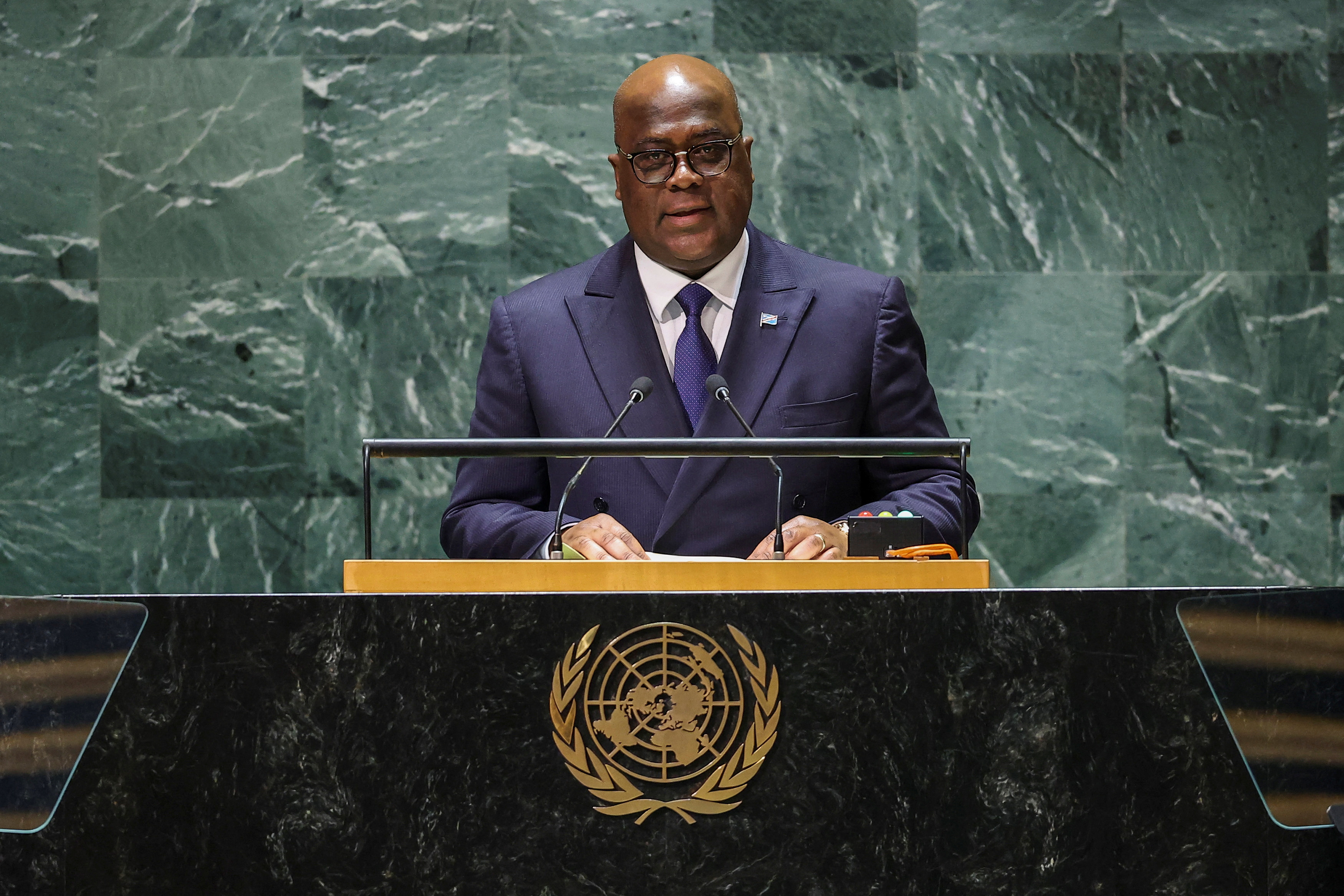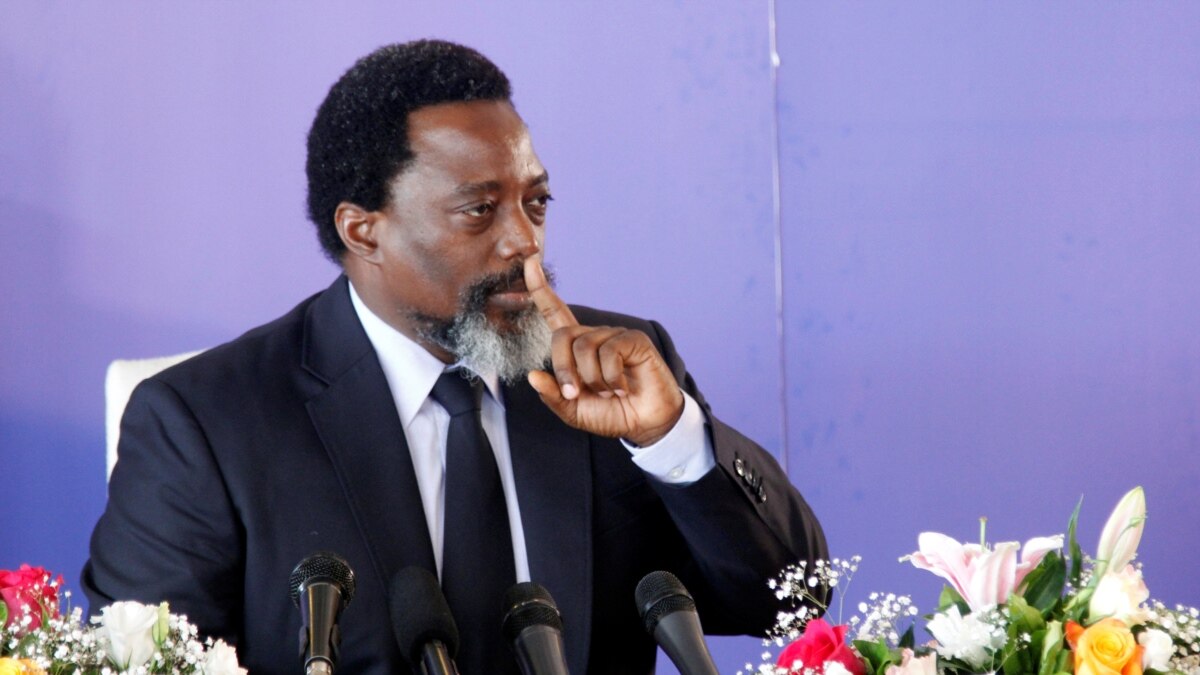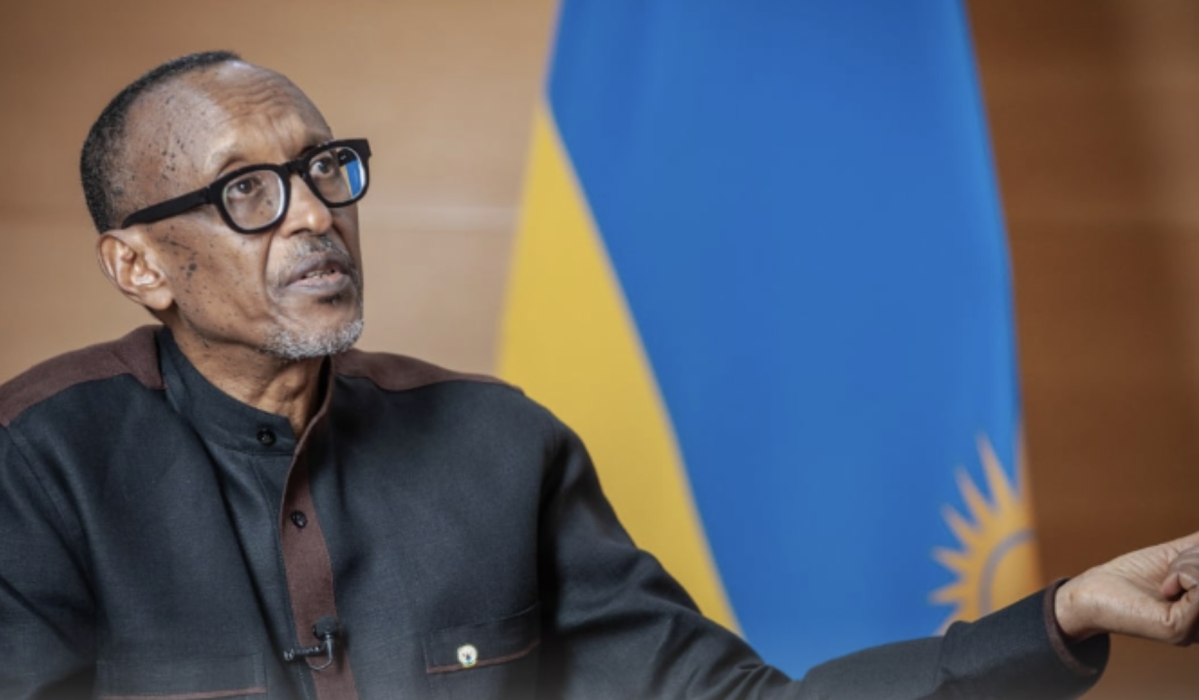Regional
DRC: Tshisekedi wants EACRF out to fuel more violence
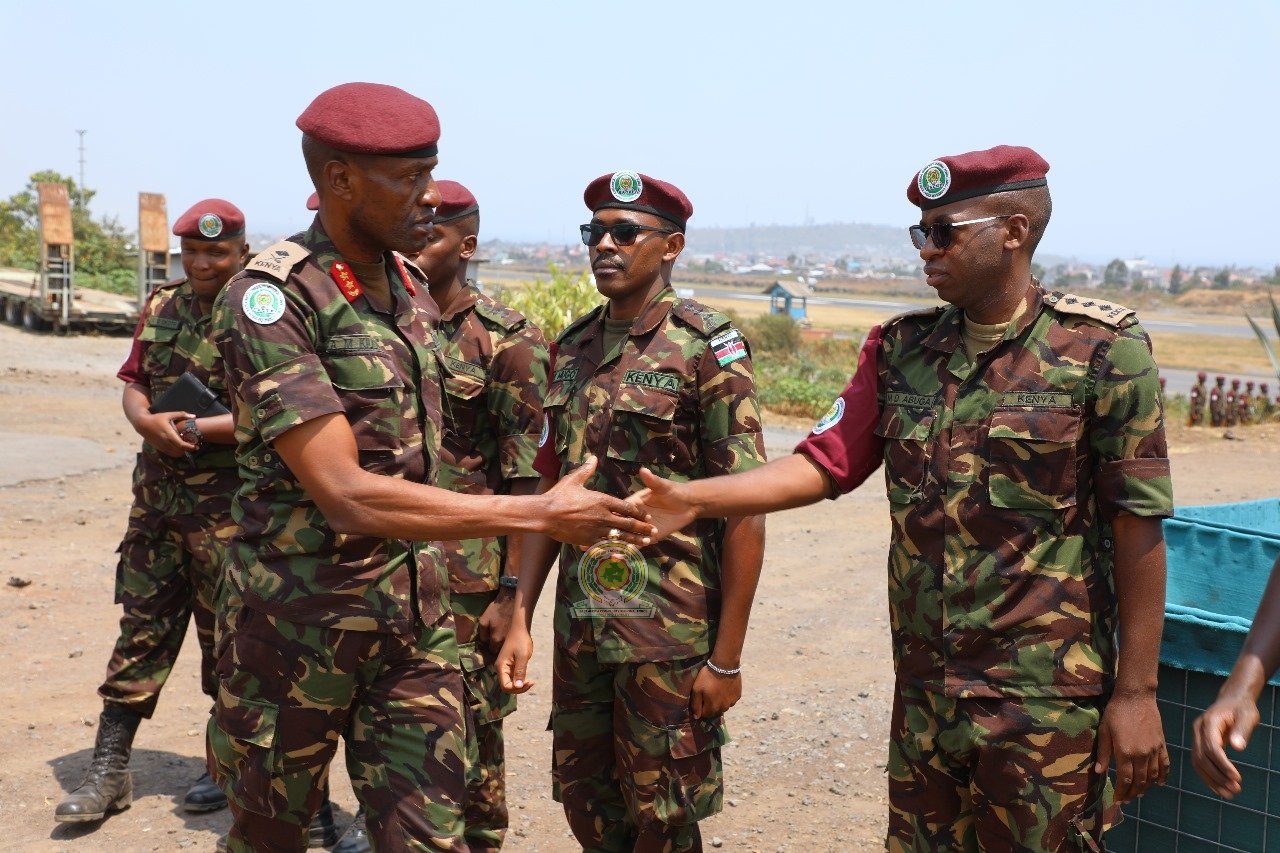
The EACRF Commander Maj Gen Aphaxard Kiugu (left) on his command visit to Kenyan troops deployed at the Temporary Operating Base at Goma International Airport, on August 17, 2023.
The
government of the Democratic Republic of Congo wants the East African Community
Regional Force (EACRF) out of the country by December 8, with Kinshasa
signaling that it is disinclined to again extend the regional force’s mandate.
The
current EACRF mandate was extended, for the second time, in September, for
three months up to December 8. But according to Congolese Communication
Minister Patrick Muyaya, Kinshasa will not allow the regional force to stay
longer.
“The
message is clear: the EAC regional force must leave DRC by December 8, as
agreed, because it has not been able to resolve the problem, particularly that
of the M23, which has been blocking the pre-cantonment process for two months,
in accordance with the agreements signed in Luanda,” Muyaya said.
The move comes after the newly formed government-backed Wazalendo militia claimed that, they were blocked by EACRF from attacking M23 rebels, advancing on the key town of Kiwanja in Rutshuru territory, North Kivu Province. The town is under the control of EACRF.
In
November 2022, Congolese President Félix Tshisekedi rallied young Congolese to
organize themselves into vigilantee groups, called Wazalendo, to support the
country’s security forces in what he called a ‘hefty mission’. The Congolese leader
made the call in response to what he alleged was a Rwandan “aggression” – in
reference to claims that Kigali was militarily supporting the M23 rebel
movement in DRC's east.
Areas
formerly held by the M23 such as Karuba, Mushaki, Kiloriwe, Mweso, Kishishe,
Bambo, Bunagana, Tchengerero, Kiwanja and Kinyandoni are under the control of
EACRF. The M23 rebels had earlier willingly withdrawn from their captured
territories in a bid to respect the terms of the Luanda peace agreement.
The
Wazalendo militia backed by government forces, FARDC, the Rwandan genocidal
militia, FDLR, and other Mai-Mai militias, seized the town of Kitchanga in
mid-October. The town was previously controlled by the Burundian EACRF
contingent.
On
October 12, the EAC condemned Kinshasa’s actions and called upon all parties
involved in the conflict to respect the ceasefire; noting that the renewed
violence stood in stark contrast to the envisioned peaceful resolution of the
conflict through the EAC-led Nairobi process, and had tragically resulted in
the loss of lives, injuries and displacement of civilians.
Kinshasa
denied any form of violence claiming that there were no massacres against the
Congolese Tutsi community, and defended the Wazalendo.
“When
compatriots [Wazalendo] defend the homeland you cannot say that they are
negative forces,” said Muyaya.
The
EAC regional force deployed in eastern DRC registered tremendous success in
ensuring the observance of a much needed ceasefire, and overseeing the
withdrawal of armed groups.
But
Tshisekedi wants EACRF out of the country. While the Congolese President wants
to go to war with the rebels, the regional bloc’s emphasis is on dialogue as
the best path towards sustainable peace.
Tshisekedi’s
hostility towards EACRF is based on the fact that the force did not fight the
M23 rebels. He accused them of favoring the rebels.
The
regional force has been the only peace keeping mission able to restore some
semblance of peace and security in eastern DRC, by supervising a ceasefire for
more than eight months. But Tshisekedi wants them out.
In
May, Tshisekedi had given the biggest warning yet that EACRF would have to
leave the country by June if they were not effective on the ground. While on a
visit to Gaborone, Botswana, where he pushed for a plan B from the Southern
African Development Cooperation (SADC) to send troops, the Congolese head of
state accused EACRF of ‘cohabiting’ with the M23 rebels after the regional
troops declined to enter combat.
“The
head of state said that under the terms of the EACRF's mandate, by next June,
if the results of its mission are not satisfactory, this contingent, which came
to the rescue of the DRC, will have to leave Congolese territory for good,” the
Congolese presidency said of his meeting with Botswana counterpart Mokgweetsi
Masisi.
“The
mandate of EACRF is ending in June, if by that time we assess that the mandate
was not fulfilled, we will send those contingents home with honour and thank
them for having tried to bring their share of contribution to peace in DRC.”
“We
have accepted the EARCF to accompany FARDC to impose peace by trying to stop
M23, which Rwanda supports. But, unfortunately, we have noticed certain
contingents among this force, except Burundi, who is putting all the efforts in
the mission as it was defined; other contingents are now living with M23,
collecting taxes in the zone that they are illegally occupying. That's a
genuine problem, and it also compels us to question the purpose of the EAC
mission.”
Despite
Tshisekedi’s harsh assessment of the East African regional force, the EAC
Secretariat issued a statement and noted that in line with decisions of the EAC
Summit, the EACRF has continued to ensure observance of ceasefire and in
addition overseeing the withdrawal of armed groups who have handed over to the
EACRF most of the areas that were under their control.
“The
EAC is proud of the work that has so far been accomplished by the EACRF towards
restoration of Peace and Security in the eastern DRC,” reads the statement.
The
EAC Secretariat appealed to East Africans and the International Community to
support the efforts by EACRF to restore peace and stability to eastern DRC.
The
EAC stressed that it is fully committed to ensure restoration of peace and
security in eastern DRC and any other part of the region.
In
June, Tshisekedi had no choice but to toe the EAC line since other regional
leaders wanted the regional force to remain in place and ensure that peace
prevails.
If
push comes to shove and EACRF eventually leaves eastern DRC, hate speech,
killings, and cannibalism, all targeting Rwandophone Congolese will continue
under Tshisekedi’s watch, and with total impunity.
The reason for Kinshasa’s push for a quick withdrawal of the regional force is obvious. By fueling more insecurity and war, Tshisekedi will have a pretext to postpone the upcoming elections because he fears he cannot win.


